Easy mistakes that make you a target for burglars
Learn how to keep thieves at bay
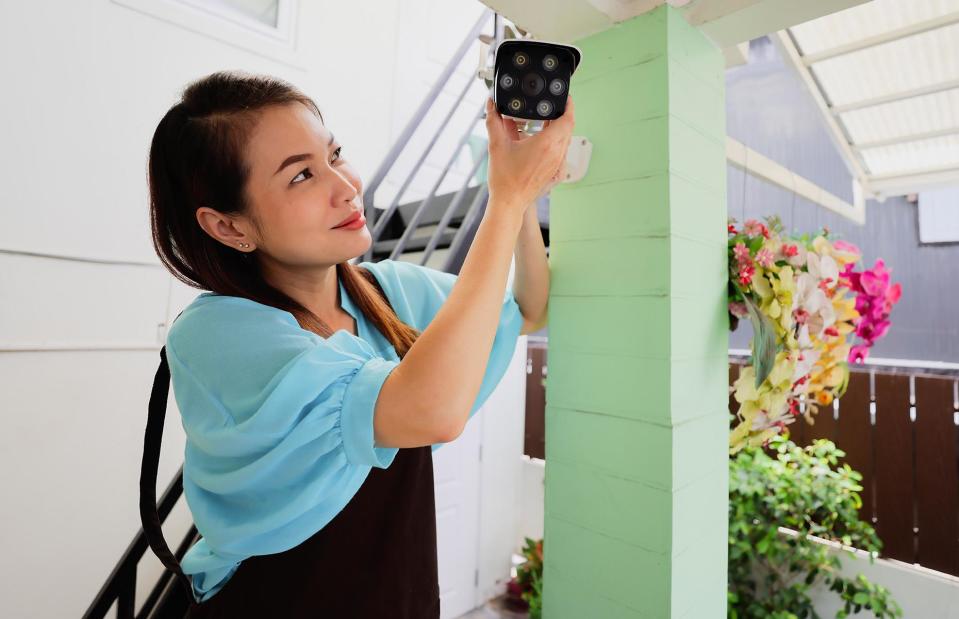
Sura Nualpradid / Shutterstock
Until it does happen, a home break-in is something you think will never happen to you. But burglary is one of the most common crimes to occur and cases are rarely solved. The good news is that home security experts say that the most simple deterrents are often the most effective – visible locks on windows and doors and a security camera go a long way. On the flip side, some basic mistakes could flag your house as an easy target.
Read on to find out what common mistakes can attract intruders...
Posting pictures of your house keys online

Prostock-studio / Shutterstock
As previously mentioned, leaving your keys in an obvious place, like under a welcome mat or plant pot near your front door, makes it very easy for thieves to gain access to your property. But in the 21st century, there is another way to welcome burglars into your home: posting pictures of your keys online.
It's a classic photo op every new homeowner is keen to stage – but, using simple software, thieves can zoom in on a picture of a key and have a copy cut quickly and cheaply.
Not installing locks on windows
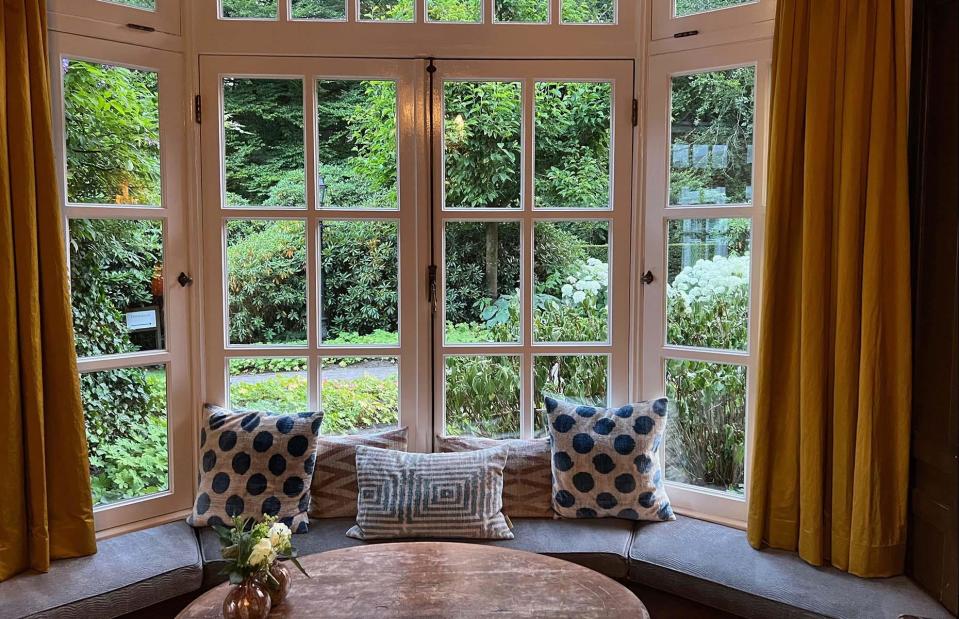
New Africa / Shutterstock
Not all windows have locks – and if yours don't, it's worth having some installed.
As well as locking up when you leave the house, you'll also want to make sure no windows are left open, as even ones on the second storey can be breached by a creative or well-organised thief.
Not closing blinds and curtains when it gets dark
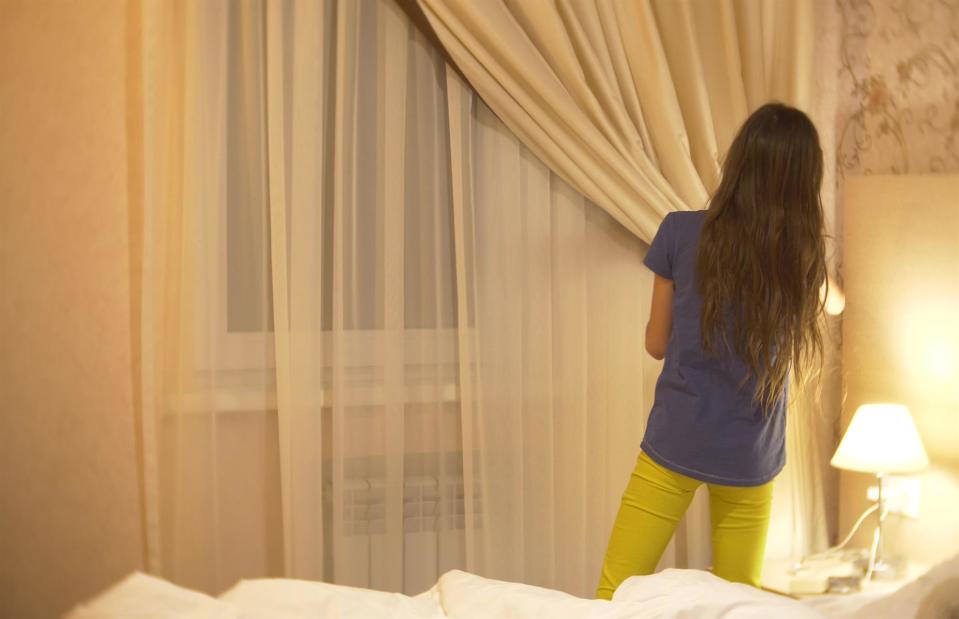
Ekaterina Vidiasova / Shutterstock
While you probably close your curtains at night for privacy, it has the added benefit of shielding your valuables and deterring burglars, as it's harder for a thief to tell whether your house is occupied or not. Burglars are much less likely to break into a house they don't know is empty, so it's best to draw your curtains as soon as it gets dark.
Opportunistic thieves use darkness to their advantage so it's worth remembering to close your curtains if you're going out while it's still light and you won't be back until after dark.
Making it obvious your house is unoccupied
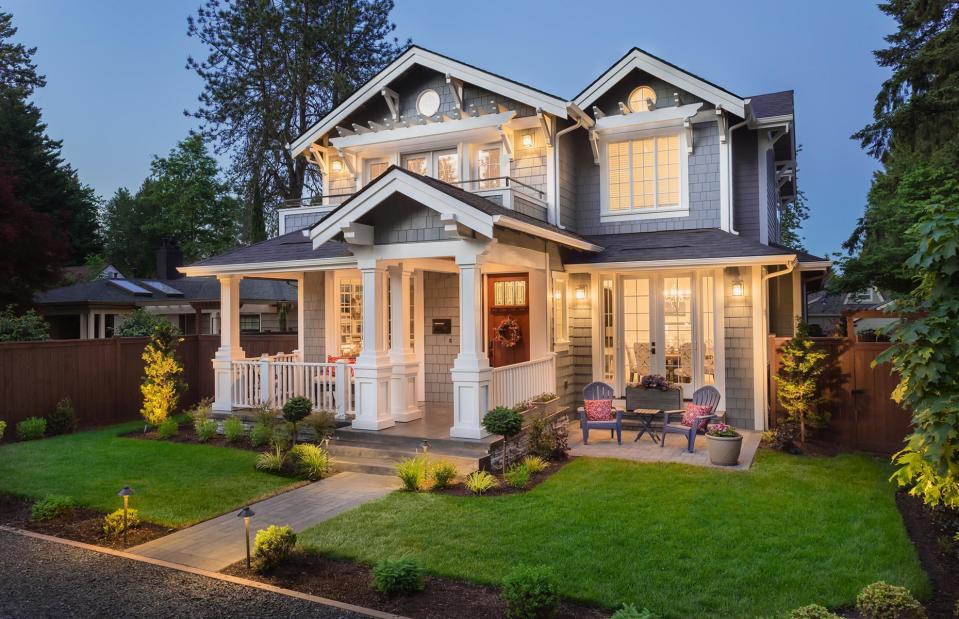
BM_27 / Shutterstock
Unoccupied houses are an easy target for a burglar, so whether you're sunning yourself somewhere or hitting the slopes, fool thieves into thinking you're tucked up at home by putting some of your lights, TV and radio on timers. Just be sure to choose energy-saving LED bulbs to avoid running up a big electricity bill.
To step protection up a notch, use a smart plug to switch lights on and off via your phone. That way, you beat the possibility of a patient burglar noticing the predictable pattern of traditional timers.
Leaving expensive goods on display
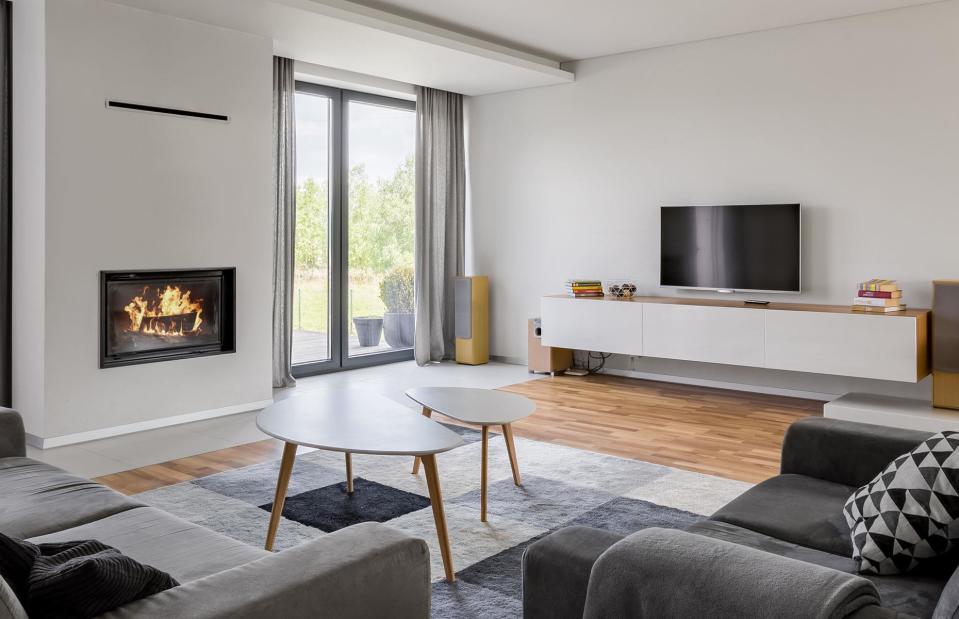
Dariusz Jarzabek / Shutterstock
As we add to our collection of tech and luxurious home comforts, it's worth remembering that burglars often case a neighbourhood before choosing an appropriate target, keeping an eye out for houses containing items worth stealing.
While the most stolen items in home burglaries tend to be wallets, money and cards, luxe objects like jewellery, watches, computer equipment and other electronics like cameras are also commonly taken.
With that in mind, it's best to keep your expensive items out of view if at all possible. Simple strategies like installing blinds or similar window dressings and avoiding posting pictures on your social media account can help keep your belongings safe.
Letting post pile up
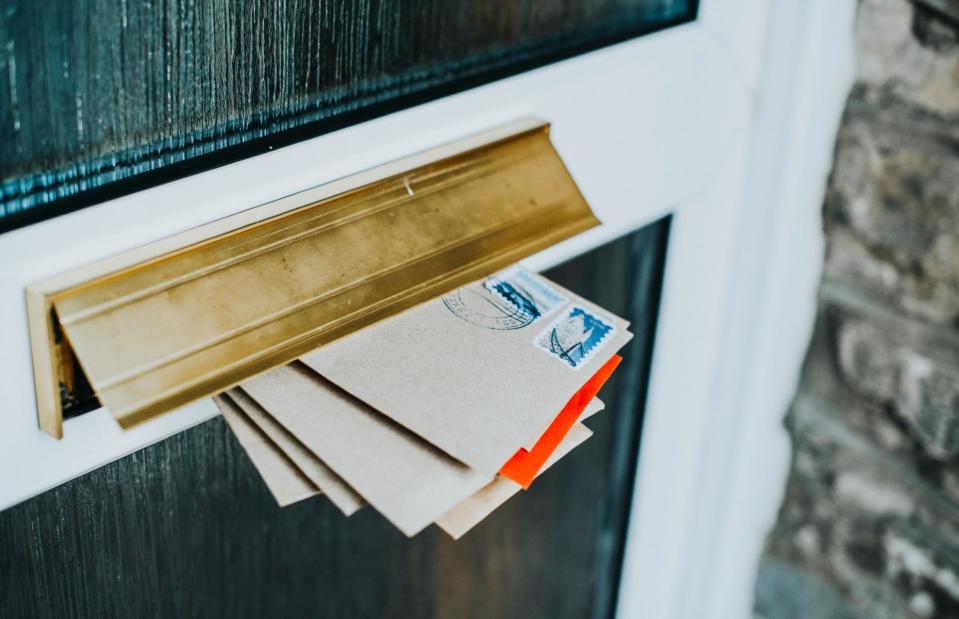
Rawpixel.com / Shutterstock
A letter or mailbox rammed with letters and junk mail is a clear indicator that nobody's home, which is certain to interest any potential thieves in the area.
If you're going away and can't process your mail, ask a neighbour to collect it for you, or update your preferences online and have your mail put on hold for the duration of your trip.
Posting on social media when you're away

Monkey Business Images / Shutterstock
When you're on a well-earned holiday in a beautiful location, it's tempting to spam your social media accounts to document what a fabulous time you're having. We get it! But you should think twice before posting because it alerts everyone who can see your content to the fact your house is vacant.
Be careful with what you post even if you have a private account, as 43% of victims in the UK are burgled by someone they know.
Leaving rubbish out
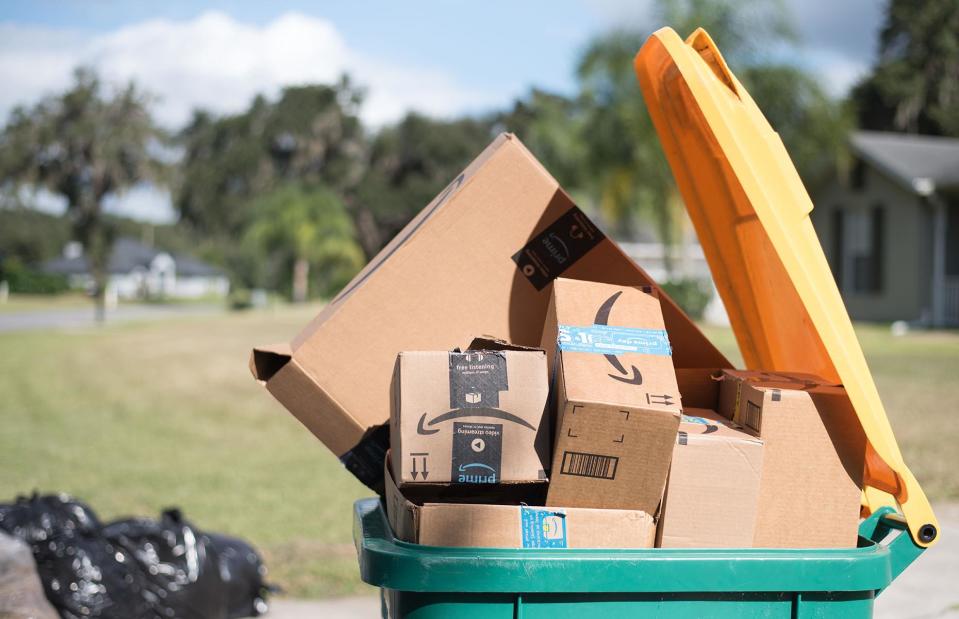
Cari Rubin Photography / Shutterstock
If you own a top-of-the-range gaming console or brand-new TV, it would be wise to dispose of the packaging properly and promptly by taking it along to your local household waste recycling centre. Electronics are high up on any thief’s wish list, so if you leave cardboard boxes advertising your new items out by your bins, it could easily attract the wrong attention. Plus, your bin workers will thank you.
It's also worth asking your neighbours to take out and bring in your bins if you go away over collection days. Bins sitting kerbside all week are a sure sign no one's home.
Leaving notes out for delivery drivers
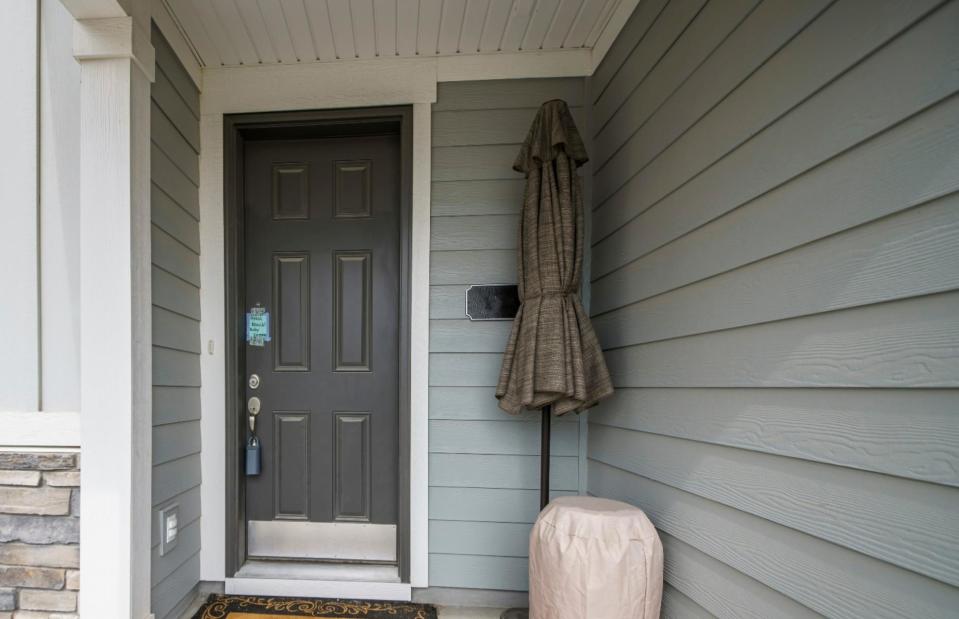
Jason Finn / Shutterstock
Leaving a note out for your postman is a surefire way to let any thieves in the area know your house is currently unoccupied, making it a much more attractive prospect for burglary.
If possible, try and time your deliveries for when you're in. When life gets in the way, most delivery services have the option to leave them a note digitally, letting the delivery driver know to leave your parcel in a safe space or with your neighbour.
Not installing motion-activated lighting
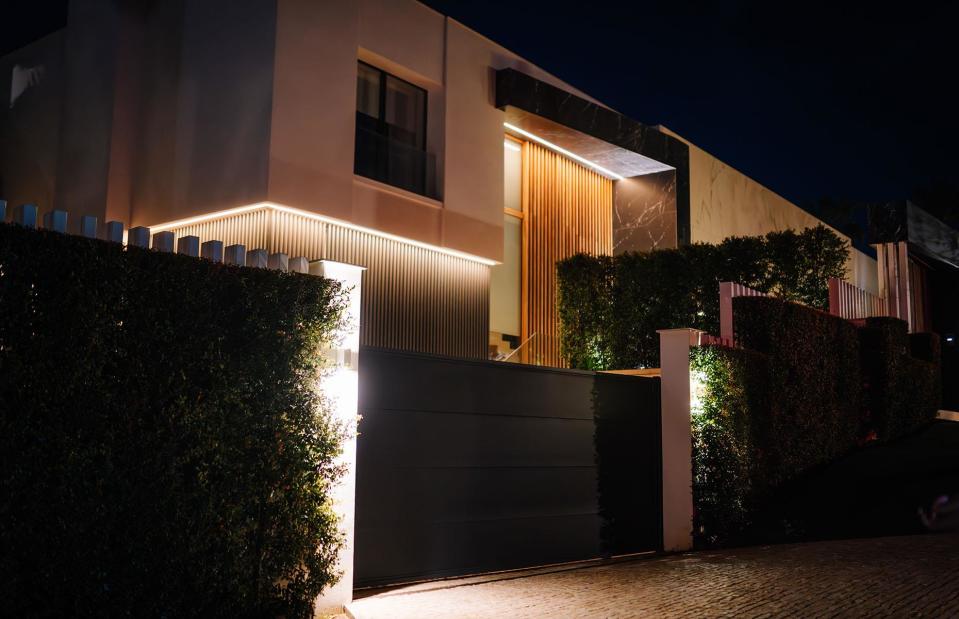
shulers / Shutterstock
Leaving a light on all night isn't very energy efficient and also isn't as effective for scaring away burglars as the shock of suddenly being caught in a beam.
Motion-detecting garden lights, which only come on when activity is sensed, will illuminate any intruders and make them think twice about taking their plans any further.
Not having a video doorbell
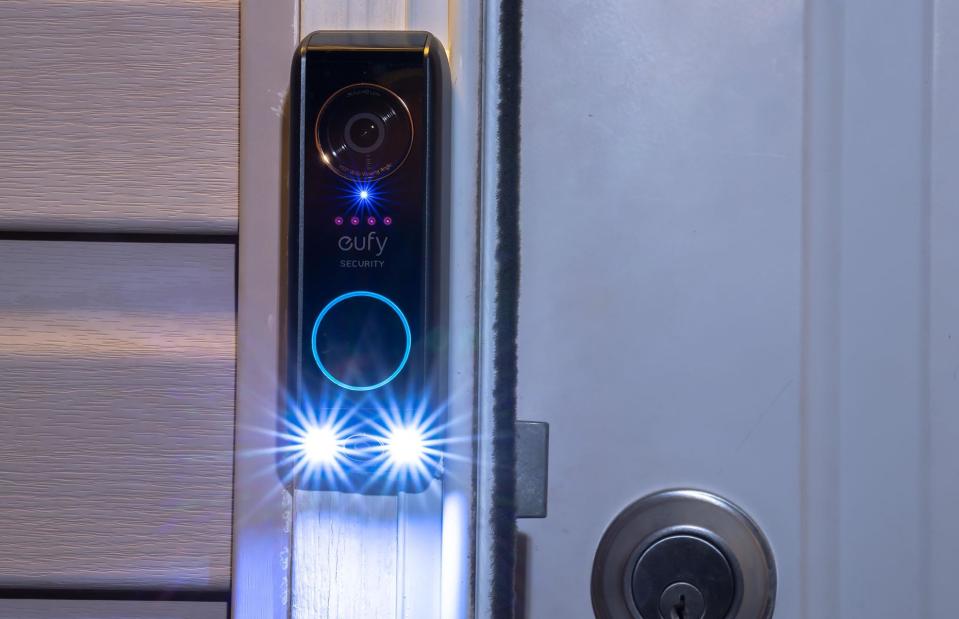
oasisamuel / Shutterstock
Video doorbells allow you to communicate with whoever is at your doorstep, even if you're not at home.
While they are popular for homeowners wanting to manage deliveries while they're out, the video aspect also acts as a deterrent to burglars as the footage usually gets streamed to an app on your preferred device. No thief wants to end up caught on camera.
Leaving belongings outside
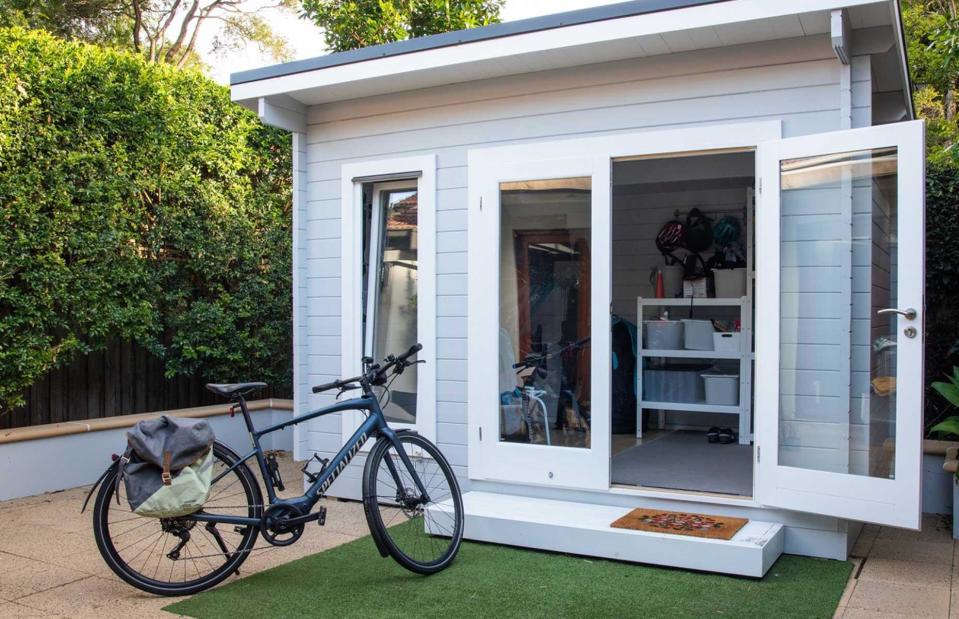
LIGHTITUP / Shutterstock
Always remember to secure belongings such as smart garden furniture, bicycles, toys and even larger play equipment.
Opportunists are always on the lookout for high-value, easy-to-grab items. So if it's easily moved, make sure it's put away and locked up tight!
Creating a vulnerable outdoor office
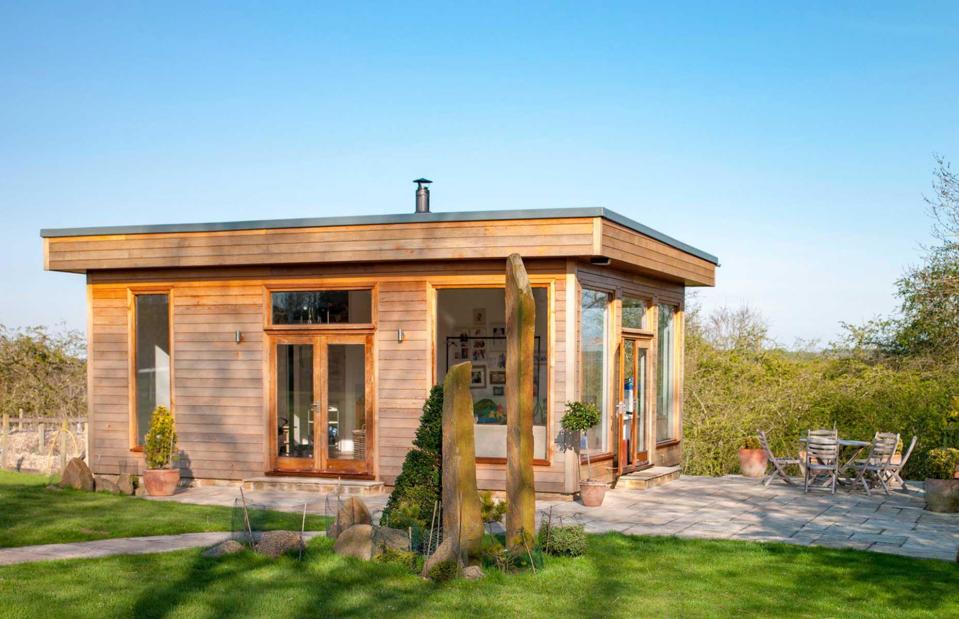
DGLimages / Shutterstock
There's no doubt that a garden room will add value and much-needed space to your home. But, whether it's used as a games room, guest suite or home office, an external building is a more vulnerable space than the main home so needs extra security. As well as fitting good quality doors, ensure hardware and locks are up to scratch.
The most secure locks tend to be rim locks, which can be unlocked from both sides and have the traditional keyhole shape with a long-handled key. Suitable for wooden and metal doors, they provide keyed access and offer a good level of security that might make a burglar think twice.
Leaving a key in obvious places
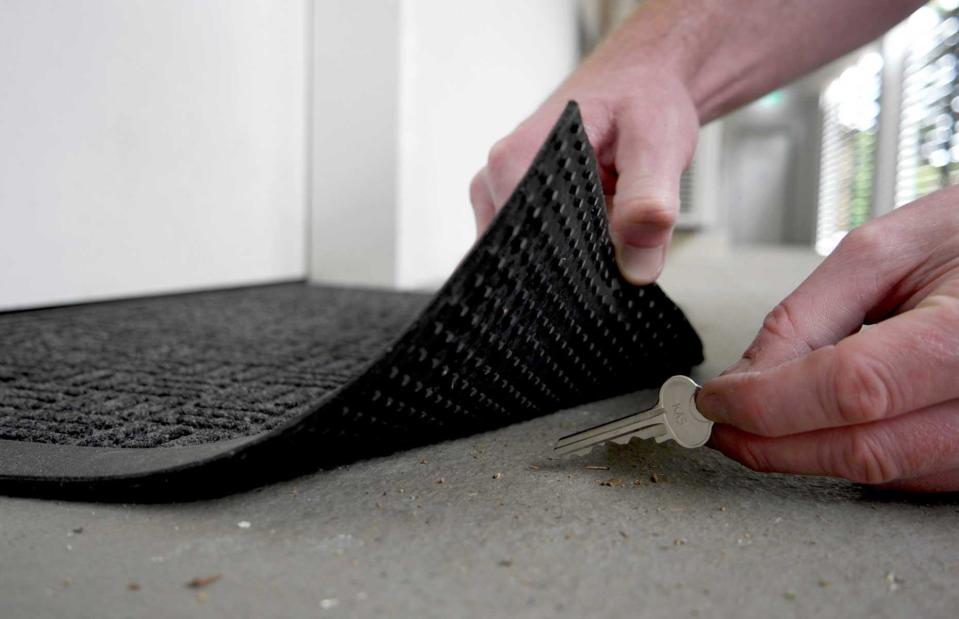
MultifacedGirl / Shutterstock
Unfortunately, leaving a house key under a doormat or on a string tied through the front door letterbox is no longer a useful backup for the forgetful. Instead, it's probably the first place criminals search when looking to loot your home.
If a key has to be left by the door, consider an outdoor key safe mounted in a secret or discreet position. Alternatively, leave a key with a trusted neighbour.
Placing outdoor storage by windows
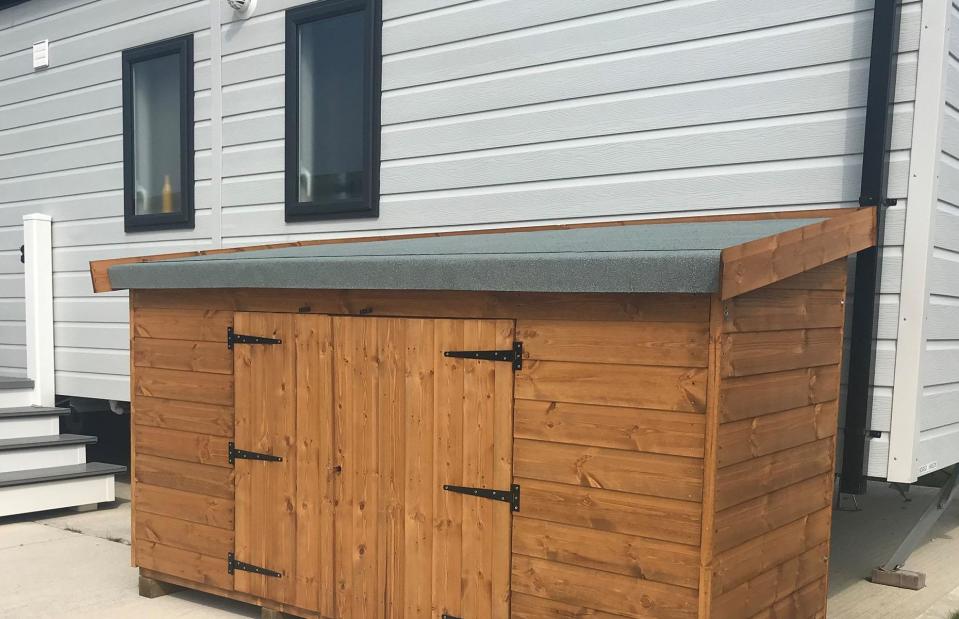
Mark Westoby / Shutterstock
Additional garden storage is always handy. Wood, plastic and wicker solutions are both space and budget-friendly options. However, if placed under a window, a sturdy storage box with a flat lid could give thieves a 'leg up' to break in.
When positioning any garden storage or furniture, take an appraisal of the garden to consider the safest setting that wouldn't assist in any criminal activity.
Forgoing garden CCTV
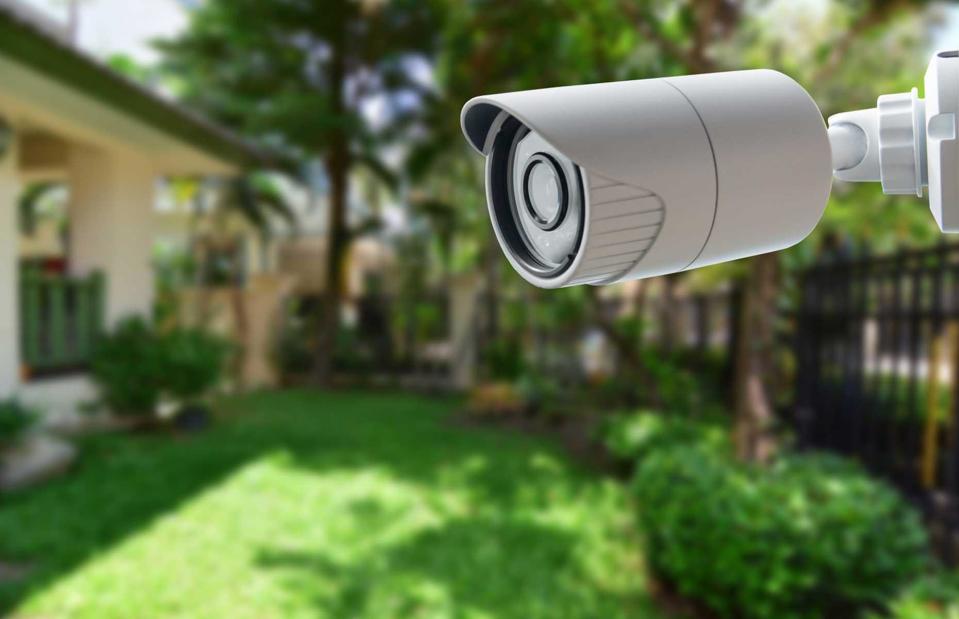
Photographicss / Shutterstock
CCTV via video doorbells and smart wireless cameras are now widely available and becoming more popular. They can even be provided via contract along with your mobile phone.
If you're installing video security in the front of your house, it's sensible to monitor your back entrance and garden, too. CCTV at the rear of your property will ensure expensive outdoor furniture and tools are also constantly under surveillance.
Hiding the front of your house

Ewelina W / Shutterstock
Fences are a practical obstacle burglars have to overcome to access back gardens but at the front of a house, an open façade will act as a deterrent for burglars.
With no high front walls or dense trees and shrubs in the front garden, burglars have nowhere to hide and neighbours are more likely to spot an intruder in view.
Leaving tools around

B.Forenius / Shutterstock
Most burglars are opportunists who have a professional eye when it comes to choosing the right houses to break into. As such, they don't tend to carry around a lot of heavy specialist equipment and are much more likely to use any tools that are lying around.
Garden tools, power tools and mowers are also common items stolen from homes and gardens. So make sure to lock up all your gardening and maintenance tools in a secure place.
Leaving a key fob by the front door
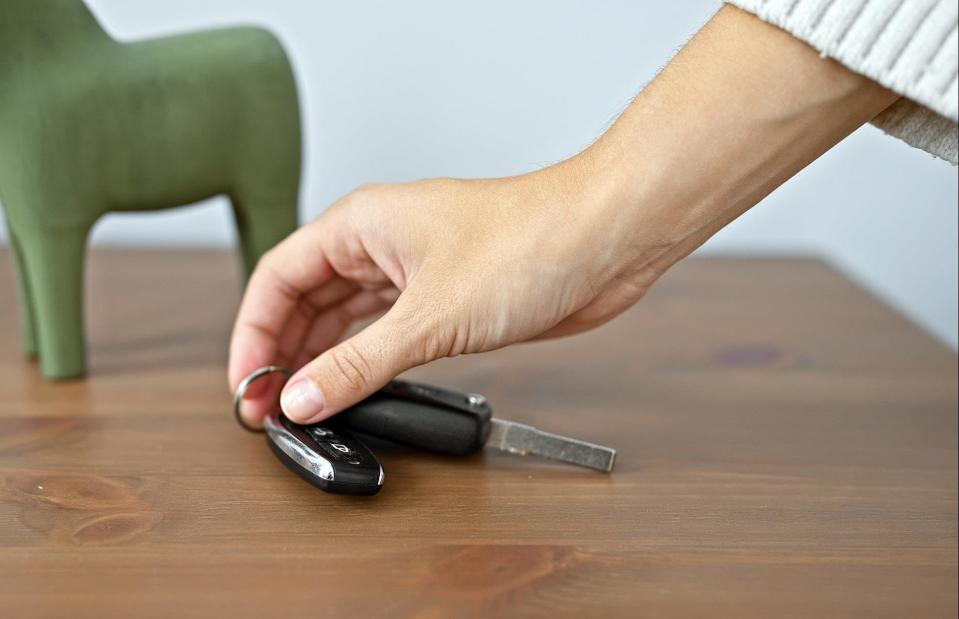
Krakenimages.com / Shutterstock
Owners of high-tech cars that allow the driver to unlock and start the vehicle with a key fob still in their bag or pocket are advised to keep their keys well away from the car while at home. Why? Clever thieves have designed devices to fool the car into thinking the key is nearby in a process known as 'relay theft'.
To protect smart vehicles, as well as keeping key fobs at a distance, police advise using signal-blocking pouches, turning off the wireless signal if not in use and considering the use of a steering wheel lock for added peace of mind.
Leaving your house keys near the door
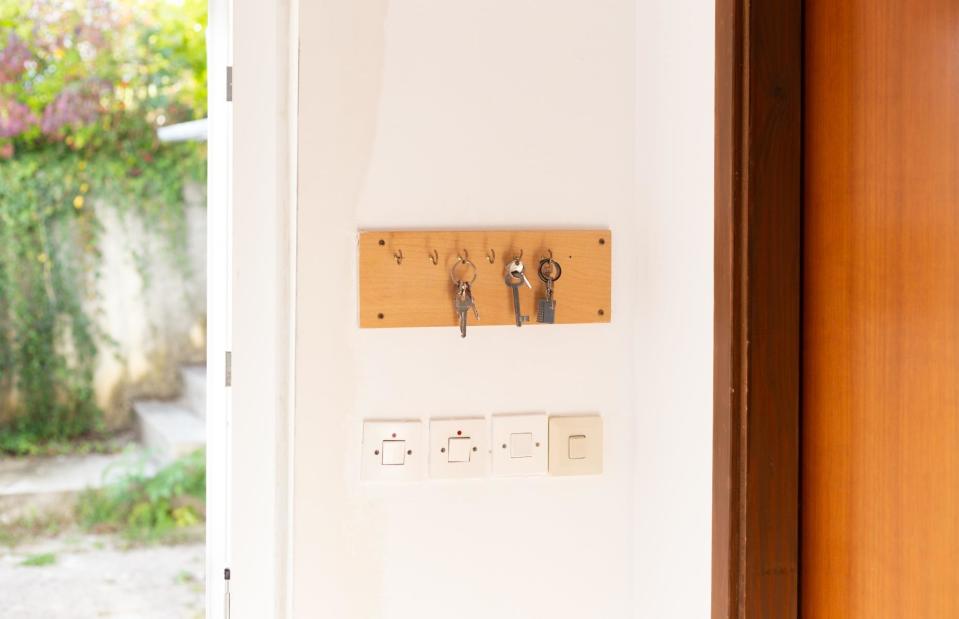
Robert Petrovic / Shutterstock
Whether you hang your keys on a hook nearby or leave them in the lock after arriving home, placing your keys anywhere near the front door leaves you vulnerable to a technique called fishing. This is when thieves feed a long item like a dismantled wire coat hanger through your letterbox to 'fish' for and retrieve your keys.
This is even more of a risk if your front door has a glass panel, as they can see what they are fishing for. Keep keys out of view in drawers or mount a hook further into the house.
Leaving car keys on display
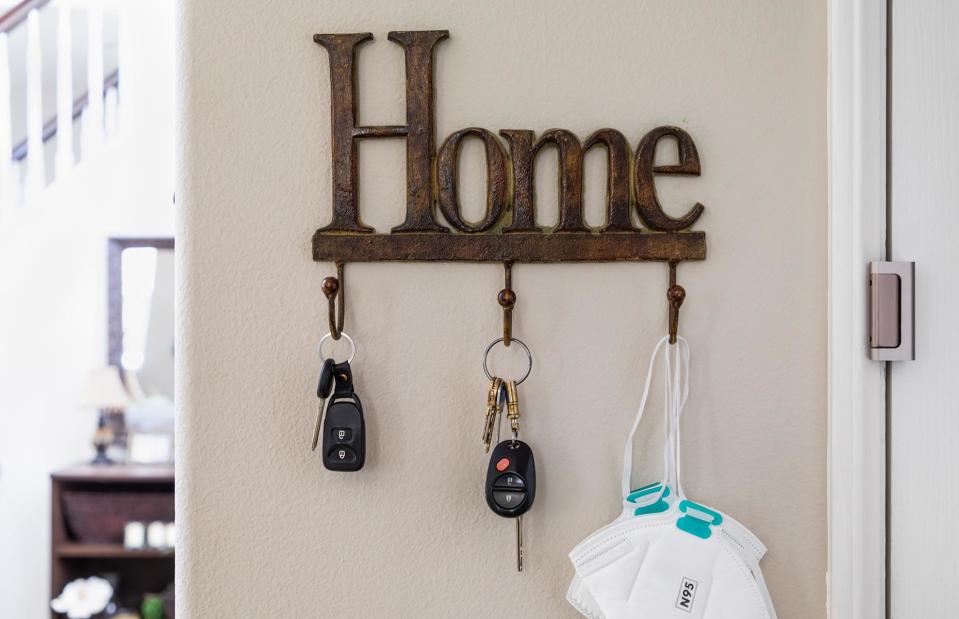
Andy Dean Photography / Shutterstock
Gone are the days of thieves targetting electrical goods like TVs and DVD players, these days they are more likely to actively search for car keys to any vehicles that might be parked outside. It's a tactic that will guarantee them a high-value reward without drawing attention to themselves by carrying bulky items out of the house.
Choose a more secure place to store your car keys, especially if it's keyless as we've already mentioned.
Not having a burglar alarm (or having an unreliable one)
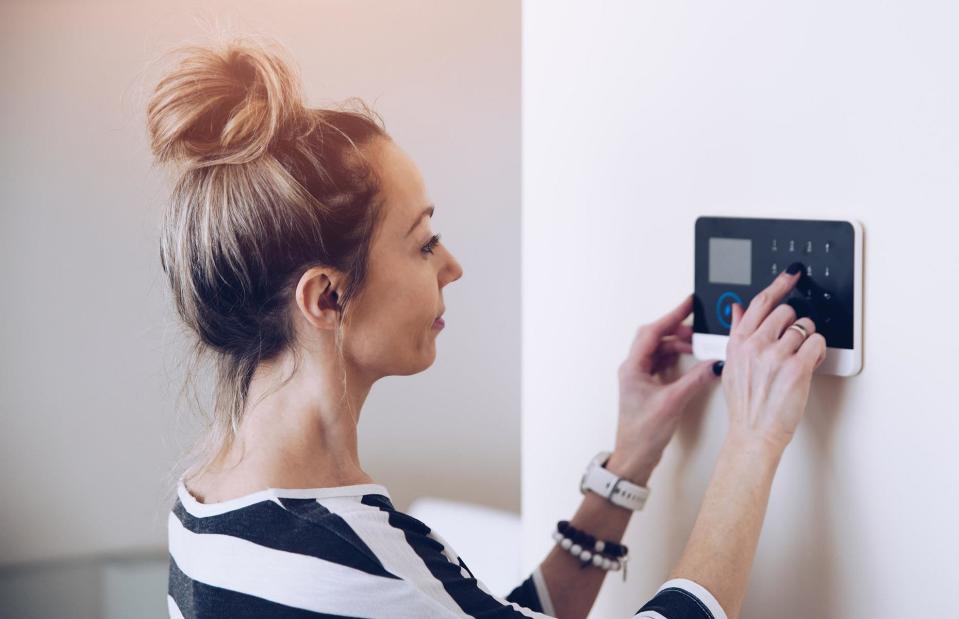
Daniel Jedzura / Shutterstock
Numerous studies have found that the majority of break-ins happen in homes without any kind of basic security system, yet only one-third of households have a burglar alarm. Of course, not all burglar alarms are created equal and thieves know which ones are easily overcome.
Look for a security system that packs a punch, with features like app access, motion sensors and automatic police response. Some even help protect against floods and fires!
Making it easy for ID thieves

LightField Studios / Shutterstock
While a laptop left on display is a clear enticement to burglars, it's not just the hardware they are after. These days criminals can make more money from selling your identity than they can just through stolen goods, but some simple precautions can protect you from financial pain.
Aside from the obvious concealment of passports and laptops, try and declutter your paperwork by filing or shredding documents with details such as your date of birth, address, full name etc, and cut up old bank cards and forms of ID. Never keep them all in the same place and make sure they're out of sight.
Having low fencing (or none at all)
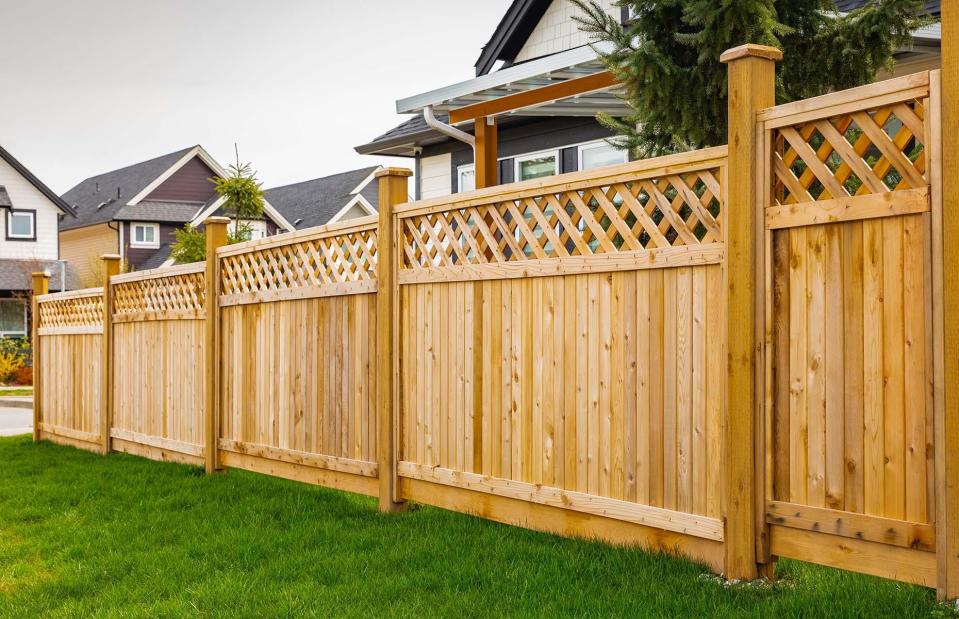
Elena_Alex_Ferns / Shutterstock
Fences are another obstacle burglars have to overcome, so it makes sense that the higher the fence the more off-putting it is for the thief who has to scale it.
Trellises can be affixed to walls to add more height and defensive planting – such as high hedges or prickly plants – can prove a discouraging challenge for most burglars.
Forgetting the garage
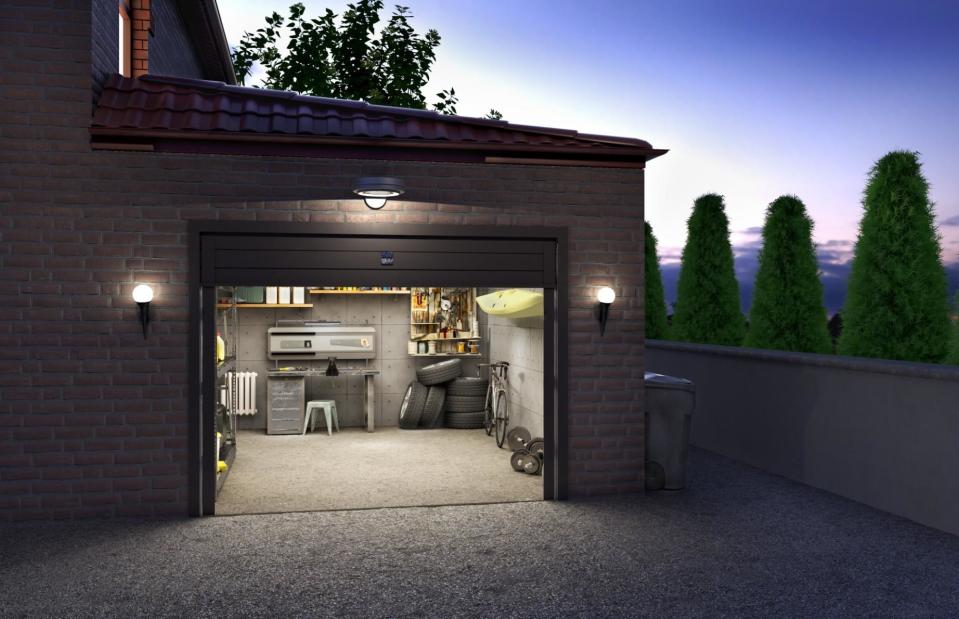
studiovin / Shutterstock
While locking the front door is an obvious first step in keeping your home safe from thieves, the front entrance is not the only one you should be paying attention to. Many tenants and homeowners alike forget to lock their back doors, patios and garage doors, leaving them easy pickings for opportunistic thieves.
Be vigilant about keeping connecting doors locked when not in use. Burglars often enter through the garage, yet shockingly only around half of us lock our garages, despite previous break-in attempts.
Not checking the deadlock
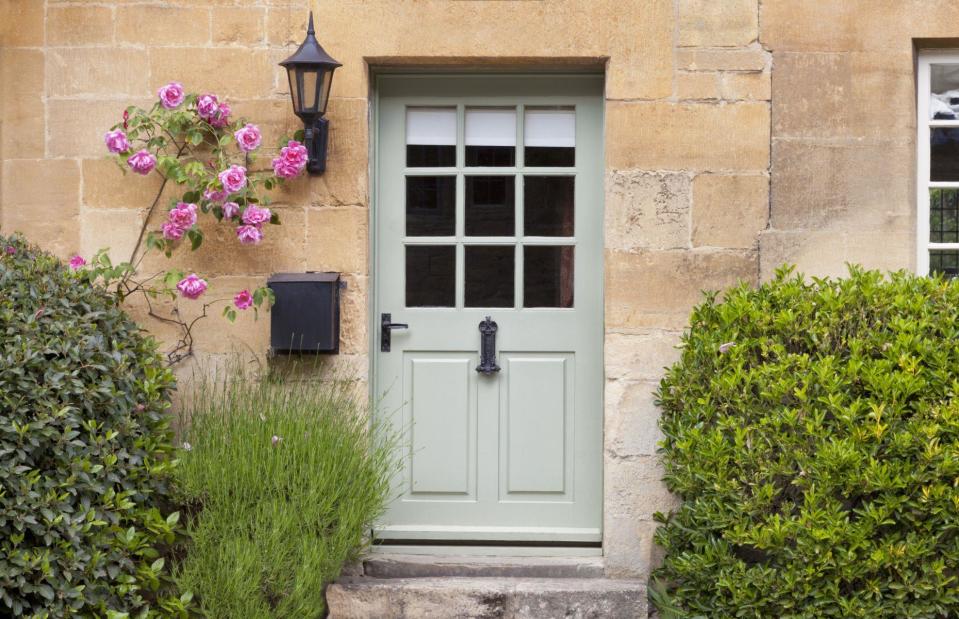
Yolanta / Shutterstock
A deadlock is your first line of defence and if it's not working properly, it's frighteningly easy to gain access through. Usually rectangular and located beneath the handle, when working correctly the deadlock should slot into the doorframe and keep your property secure.
If it doesn't go all the way into the frame, however, thieves can slide a credit card through to gain access to your home. If you're not sure how to check if your deadlock is properly installed, call a locksmith for help.
Using window air-conditioning units
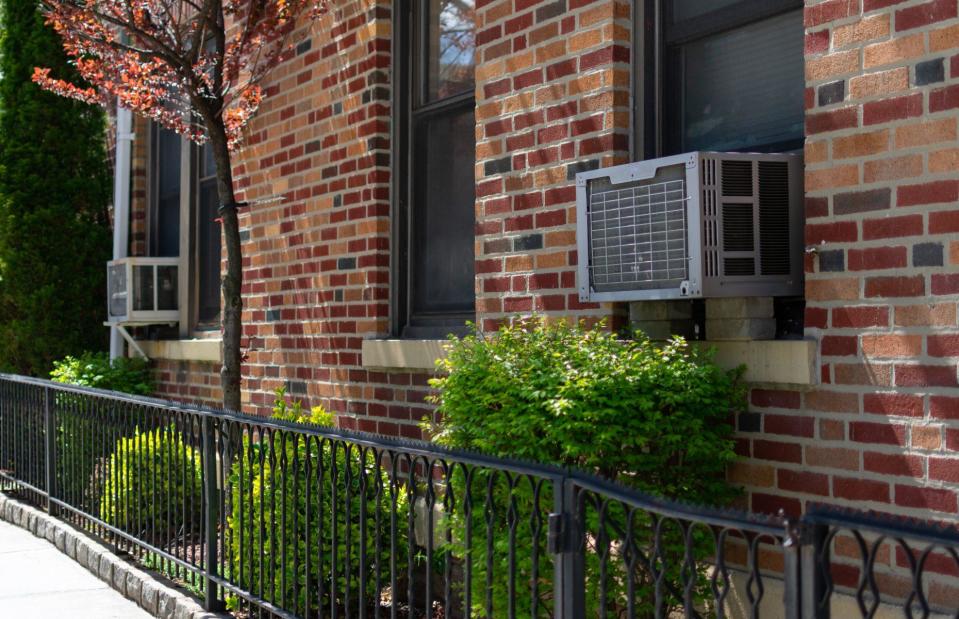
James Andrews1 / Shutterstock
These old-school air-conditioning units are popular for keeping small spaces nice and cool, but they are also easily knocked out of the wall or window by burglars looking for an easy way in.
If you’ve still got one, it could be time to upgrade your air-con system.
Having a quiet driveway
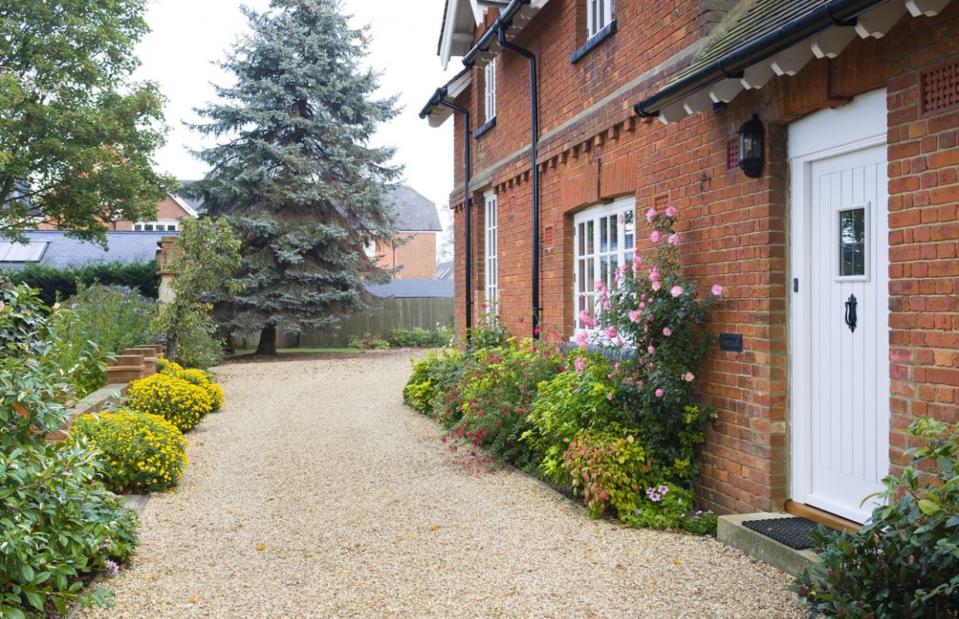
decorativeaggregates.com
Burglars are looking for homes with the least resistance and any abode that looks like it has the potential to be noisy to wall across is automatically less appealing.
This is because any noise will draw attention to the burglar, which is the exact opposite of what they want. So opt for gravel over paving on your paths and driveways.
Having a dense garden
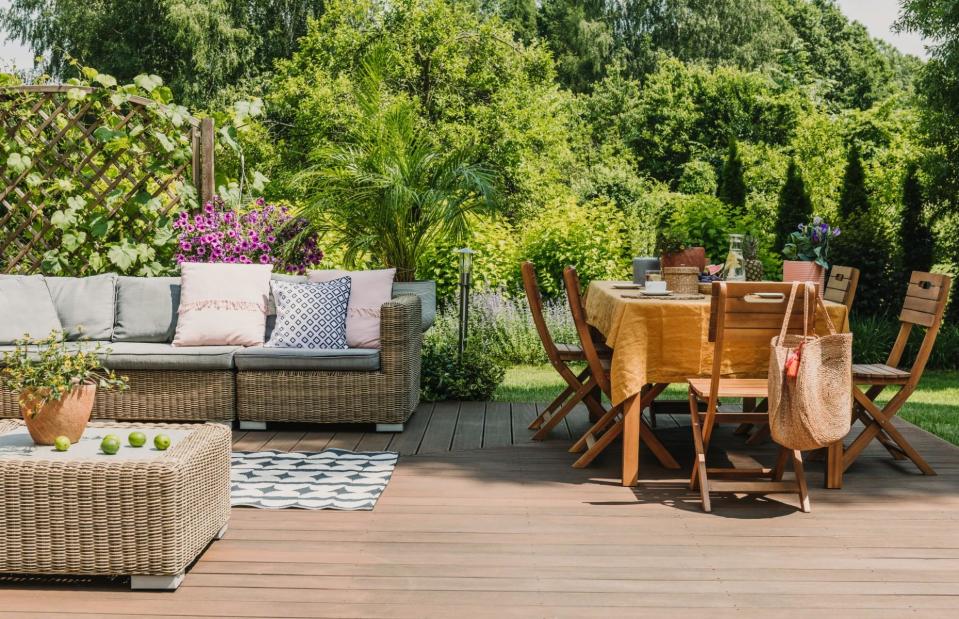
Photographee.eu / Shutterstock
When it comes to garden landscaping, filling your outdoor space with trees and bushes will attract thieves, as they offer plenty of hiding places.
To mitigate this, try and keep the area close to your house relatively open, with only low-lying foliage and install some motion-sensitive lights in your back garden.
Having estate agent signs outside
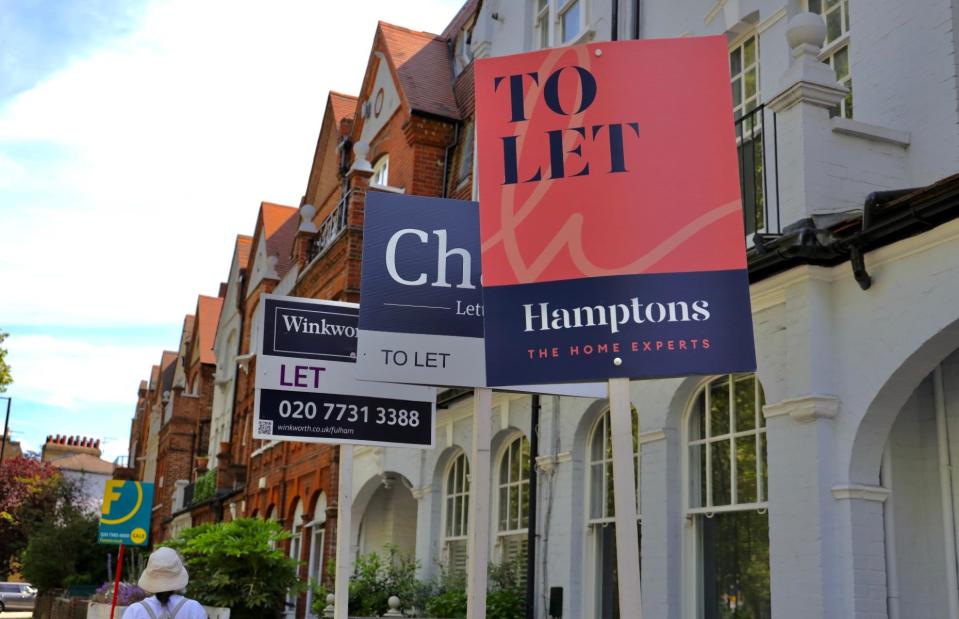
Brookgardener / Shutterstock
Having a sign showing a house is for rent or sale can be problematic for multiple reasons. First, it could signal an empty home, which makes planning a potential burglary much more straightforward for the thief.
And if it's in a student area, it can show which homes will soon be populated by students, who are notorious for forgetting to lock up on nights out and owning lots of expensive tech.
Not participating in Neighbourhood Watch
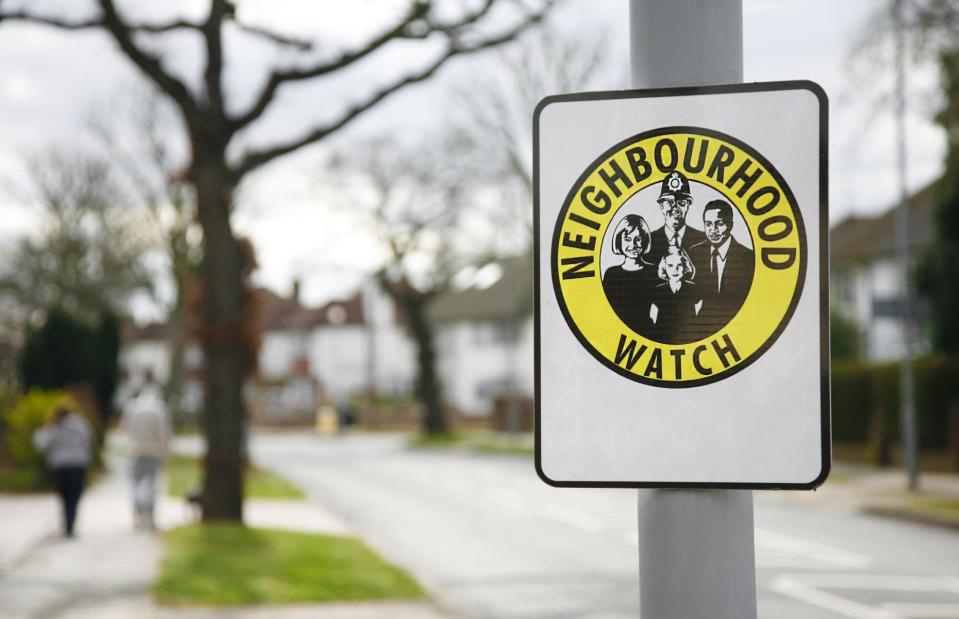
Sampajano_Anizza / Shutterstock
If you want to lessen the likelihood of burglary, joining your street's Neighbourhood Watch scheme could be a good shout. Research shows that Neighbourhood Watch members are less likely than non-members to have experienced crime.
By increasing surveillance, altering risk perception and behaviour and encouraging neighbourly cohesion, such schemes give burglars a much harder time.
Not having a dog
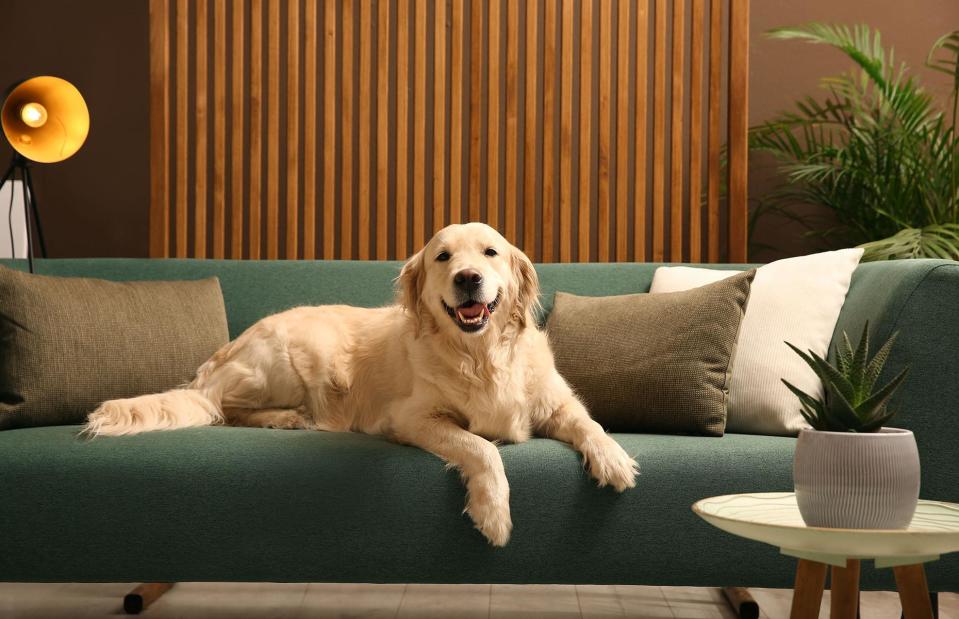
New Africa / Shutterstock
Burglars don't want to attract any unnecessary attention and a loud or angry dog is guaranteed to cause a commotion. This is why research ranks having a dog second only to security cameras for putting burglars off a house. You don't even need a large or guard breed; little dogs makes lots of noise too!
We're not suggesting you get a dog purely to deter thieves – but if you were already considering adding a four-legged friend to your pack, this fact might just seal the deal...
Not checking installed locks
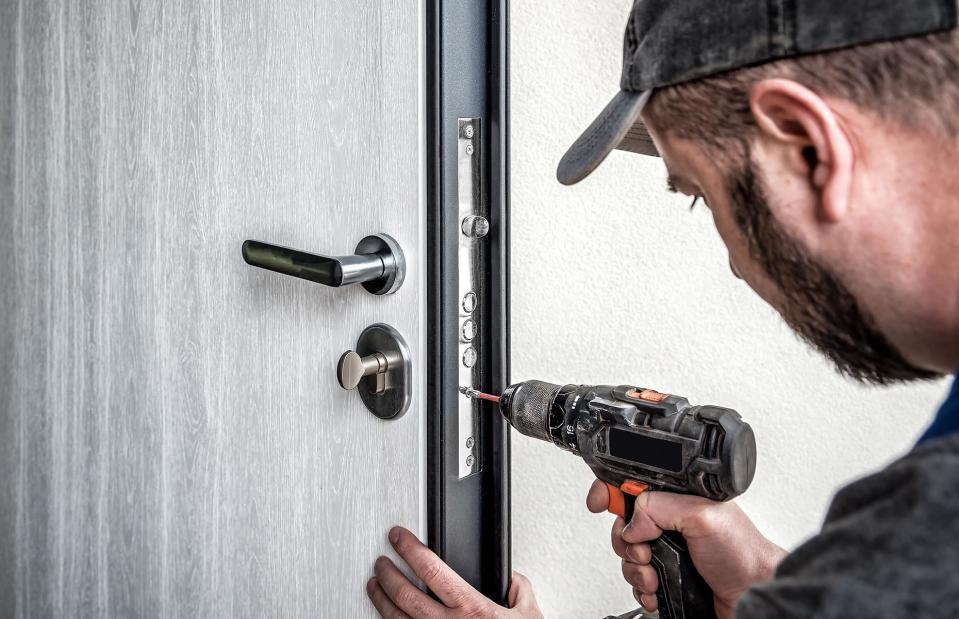
Vova Shevchuk / Shutterstock
Many locks, keeps and plates are installed using the screws that come in the packet along with the lock. This applies to door hinges too. However, these can be as short as just 0.5 inches (1.25cm) and can come away from the door with one swift kick.
To make your door more secure, check your screws and if needs be, replace them with good quality screws of three inches (7.5cm) or longer.


